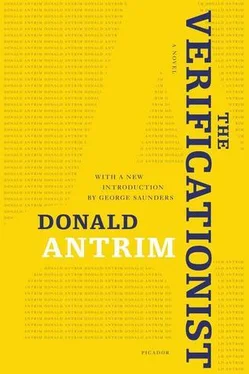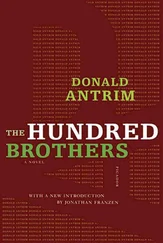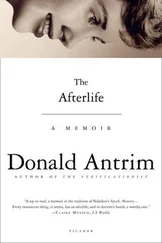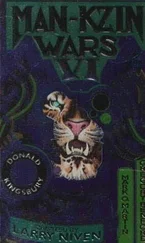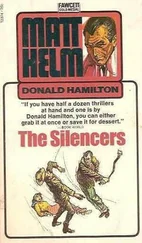“Nothing is crazy,” I said, though I know otherwise from my job. It was unclear whether she needed an answer from me. She said, “The cat’s in the way. Move the cat, will you?” And, to the cat, “Sorry, honey, you have to go over there now.” Then, to me, “She’s sweet, isn’t she?” Next she spoke to the cat again. “Hey, are you going to catch your white moth, sweetheart?” After a moment she whispered to me, “Look, she’s watching us. Don’t slow down, okay? We can fuck in front of Larry, she doesn’t care. Pull the bathrobe over us, will you? It’s cold in here. I like this room, I think. The floor is filthy, isn’t it? It’s pretty, the way the light is bright outside but doesn’t shine directly in. It’s so blue out, Tom. The days are getting longer. Have you noticed?”
“Yes.”
I had a runny nose and nothing to wipe my nose with except Jane’s bathrobe. I used her bathrobe’s sash as a handkerchief. I was careful not to let Jane see me doing this. She said, “Soon we’ll turn the clocks forward. It’ll get windy and rainy, and you’ll be depressed.”
“I will?”
“You always are in spring. You know that. The tulips come up and the Pritchetts’ magnolia blooms, and it stays cold for a long time, and then Easter comes, and after that you get depressed, and later it gets warm and the mourning doves come.”
“Doves,” I said.
“They make their nest in the window,” Jane said; and she asked, “How many years have they been coming?” Then she explained, “They make homes out of whatever they find, broken sticks and copper wire and dirty string and rubber bands and tape.”
All this time, while Jane and I talked, we were making love. Jane quietly cried and I held her head in my hands. She said, “Do you mind my hand? It hurts a little if I push? Can I push harder into you?”
“If you want.”
“But what do you want?” she asked; and she told me, “You’re a man and I’m not a girl and I’m not who you think I am, you shit.”
After that, in the little room, for a little while, as sunlight came and went, we cried and fucked.
It was not yet the season, that April night at the Pancake House, for nesting doves to fly north and make homes beneath bedroom air conditioners. Frost coated leaves and the grass on these early spring mornings. Some days felt summery when the sun came up; others were winter-dreary, and on the bleak days it looked like a late, last snow might fall from the white sky.
As it happened, that evening at the restaurant, spring’s heavy rains were on the way. I could tell from changes in my mood. Coming rainfall — the spattering drops that blow in from a distance, out from dark weather advancing over the horizon, blotting out the daytime sun or the Milky Way at night — invariably causes me to feel irritable and worried. Confusion sets in, or a mild fretfulness, really, that grows and intensifies as, from the north or northwest, precipitation advances. Then I become withdrawn, on a sunless day or muggy night, and fall into a mood of quiet trepidation that may, I believe, have its natural analogue in the wary stillness adopted by forest animals during the hours preceding a storm. What is more quiet than that silence heard from skunks and raccoons before a downpour? It follows that anticipation of rainfall engenders, in humans, sensations that could truly be called primordial and atavistic — those old and, in modern urban life, often scarcely perceived terrors of the dark, of isolation and the cold, hunger and loneliness and death from starvation or some other outcome of exposure; the unanalyzable terrors, best articulated not in language, rather by the body’s tense, speechless postures of watchfulness and dread.
What I am trying to say is that I was in a panic, that hazy night at the Pancake House & Bar, as I floated up from Bernhardt’s arms — one foot, then two, finally three feet into the air above our table. I glanced down at my friends around other tables, Elizabeth and Sherwin, Peter and Dan, Terry and Mike, Maria and Manuel, and Leslie and the other trainees, the whole relational matrix, and I felt, seeing their faces, queasier and queasier — it was like a case of drunken spins. In my practice I work with men and women recovering from addictions, and I am always fascinated by their descriptions of withdrawal, particularly the typically awful booze withdrawal featuring its pornographic hallucinations of multitudinous crawling bugs, devouring serpents, and freakish, hairy toads. Looking down at my colleagues around their dollhouse tables, I felt in sympathy with the addict; these women and men, my dear coworkers in their chairs below me, were, to my mind, a menacing, buggy swarm — a deadly hive of analysts wearing caked-on makeup and beady eyeglasses and cardigan sweaters knit from wool like matted fur.
Naturally I tried flying away. The world outside the restaurant waited. Jane waited, and home waited. But flying was not easy; it was not a matter of flapping my arms, veering left or right, turning somersaults in the air or darting back and forth to light on windowsills or countertops before leaping again to glide above the houses and the hills, away from all these people with snarling faces, away from problems and straight up, headlong over the book factory and the covered bridge, out past the burial mound, following the river into the chilly night.
I couldn’t flap my arms. They were pinned to my sides by Bernhardt’s. How had I managed to get in such a bind over a stack of cinnamon-raisin toast? If I flew away, if I truly flew, would Bernhardt accompany me? Might Bernhardt, this obese and lumbering man, remain attached, riding along with me from place to place, piggyback? It was a gruesome possibility. As always, I could feel the man’s breath on my cheek. You could say that Bernhardt’s presence was becoming a constant in my life. Waving my arms was impossible, really. I had no wings! I kicked my feet as a flight test and Bernhardt punished me for this with a mild squeeze to the ribs. The reasons to fly were both physical and psychological. In other words, flying would be a sexual act, and consequently hazardous.
Maybe if I closed my eyes. But no, this was bad. It is helpful, when nauseated from rocking and swaying, to focus on a still point in the distance — a lighthouse, for instance, if there is one in view. I looked out a nearby window. And there it was. There was the municipal hospital with its brightly lighted roof built in the shape of an Egyptian pyramid. This roof stood out against the fogged-up sky; it glowed above the slate black, steel-and-glass tower supporting it. The tower itself was almost invisible in the night, and the hospital’s upper stories — missing, in the fog, their otherwise visible support, the massive building underneath — hovered over the business district and the old, polluted riverfront. This floating pyramid was, obviously, an illusion; but it was a lovely, appealing one. The roof looked, to me, gazing at it from far off, through the low, wet mist gathering in advance of rain — the hospital’s pyramidal top looked as if it were levitating, a shining temple floating fifteen stories high.
Had the architects known how their building would appear at night? Did the hospital’s planners conceive this effect of a great Egyptian burial chamber, a holy resting place in the sky above our city?
I kept my eye on the pyramid. As I have noted, the main part of the hospital building, the dark, perpendicular rectangle beneath the pyramid, had more or less vanished in the mist. Operating rooms; the nurses’ stations and waiting areas for family and friends; the blood and pathology laboratories, the pharmacy and the morgue; and echoing corridors, the long halls leading to identical rooms furnished with new beds for sick patients — these things, it seemed to me as I looked out the restaurant window, were gone. All that was left was the roof. What did those top floors contain? The intensive care unit? The maternity ward? The most expensive, private rooms? Thunder rumbled, though only faintly; the storm remained miles to the north. The hospital pyramid, hanging over the city, looked as if it might blast off and depart into space. Or might it instead plop down and settle on the ground — maybe on one of the Kernberg College playing fields or, more likely, at a safe distance outside town, not far from the Pancake House, on one of the unused airport’s broken landing strips, where the hobbyists fly their wood-and-paper planes?
Читать дальше
